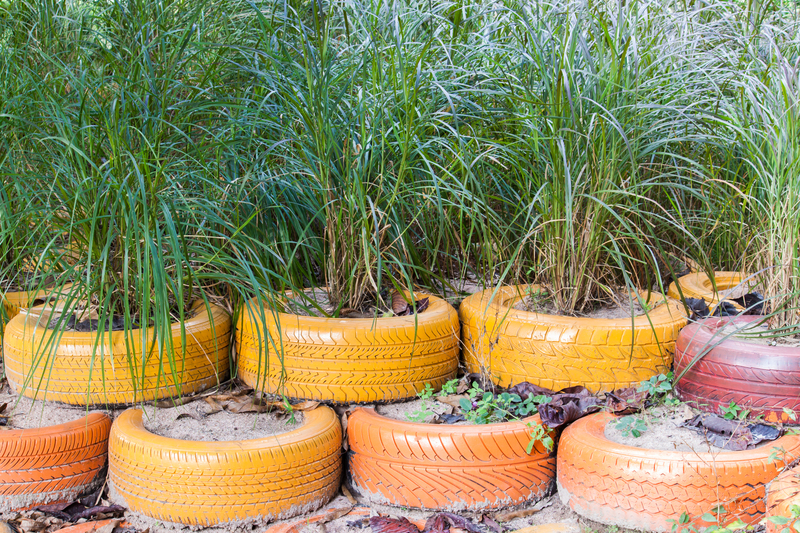Effective and Low-Cost Approaches to Bulky Waste Disposal
Bulky waste disposal is a significant challenge for households and businesses alike. From old furniture and mattresses to large appliances and construction debris, getting rid of these oversized items can be expensive and complicated. However, with innovative solutions and sustainable strategies, it's possible to manage bulky waste efficiently and affordably. In this article, we'll explore a comprehensive range of effective and low-cost approaches to bulky waste disposal, offering practical advice, eco-friendly tips, and actionable steps for anyone looking to declutter without breaking the bank.
Understanding Bulky Waste
Before implementing a disposal strategy, it's crucial to understand what qualifies as bulky waste. Generally, bulky waste refers to objects too large to fit into regular trash bins, such as:
- Furniture: sofas, chairs, wardrobes, beds
- Appliances: refrigerators, washing machines, air conditioners
- Mattresses and box springs
- Garden waste: branches, logs, large bags of leaves
- Construction debris: drywall, lumber, sinks, and toilets
Municipal waste systems and private garbage haulers often have specific guidelines for _bulky waste disposal_ due to the logistics involved in transporting or processing these items. Mismanagement can lead to illegal dumping, environmental harm, and unnecessary costs.

Why Proper Bulky Waste Disposal Matters
Disposing of bulky items in the right way isn't just about convenience. Responsible disposal:
- Protects the environment by reducing landfill overload
- Prevents hazardous materials from contaminating soil and water
- Promotes recycling and resource recovery
- Supports social initiatives through donation and reuse
- Minimizes public health risks from illegal dumping
- Reduces unnecessary expenses and landfill fees
With these benefits in mind, exploring affordable bulky waste management solutions is essential.
Top Low-Cost and Effective Bulky Waste Disposal Methods
1. Municipal Collection Services
Many towns and cities offer scheduled or on-demand bulky waste collection services, either free annually or for a nominal fee. Here's how to take advantage of them:
- Check local collection schedules: Some areas provide seasonal or yearly curbside pickup for large items.
- Follow preparation guidelines: Items may need to be separated, placed on the curb, or broken down into manageable components.
- Book in advance: For on-demand pickups, contact your municipal services to reserve a collection slot.
Tip: Confirm what types of items are accepted, as some appliances or construction materials might require special handling.
2. Drop-Off at Local Recycling and Transfer Stations
Recycling centers and transfer stations are excellent destinations for bulky waste because they often divert items from landfills. Many accept:
- Appliances and white goods
- Scrap metal
- Mattresses
- Electronics and e-waste
- Old furniture
Some facilities have minimal or no fees, especially for residents. Before loading your vehicle, call ahead to verify what materials are accepted and any associated costs.
3. Community Clean-Up Events
Neighborhood associations, environmental groups, or municipalities frequently organize community bulky waste clean-up days. These events offer:
- Drop-off points for large items at no charge
- Volunteer help with heavy lifting
- Recycling trailers or bins for specific waste streams
Participating in these initiatives not only lowers your disposal costs but also fosters a cleaner, stronger community.
4. Sell or Donate Usable Items
One of the most environmentally friendly and cost-effective ways of bulky waste removal is to keep items in circulation. If your furniture, appliances, or building materials are still in good condition, consider:
- Donating to local charities: Organizations like Habitat for Humanity ReStores, the Salvation Army, or local shelters may pick up large items for free.
- Selling online: Platforms like Craigslist, Facebook Marketplace, and community forums are vibrant marketplaces for used goods.
- Freecycling: Join networks dedicated to giving away unwanted goods to those who need them.
This approach diverts waste from landfills, supports those in need, and can even earn you a bit of money.
5. Creative Reuse and Upcycling
With a little creativity, many seemingly useless bulky items become valuable resources:
- Repurpose furniture: Turn an old dresser into a garden planter or storage bench.
- Use scrap wood or metal: Source material for DIY projects or repairs around your property.
- Upcycle appliances: Salvage components for makerspaces, schools, or artistic projects.
This strategy not only saves on disposal fees but fosters sustainability and personalization.
6. Bulk Waste Collection Partnerships
If you live in an apartment complex, housing community, or share office space, organize a joint disposal effort. Benefits include:
- Shared hauling costs
- Potential group discounts from waste removal companies
- Easier logistics for scheduling pick-up days
Pooling resources is a smart approach for reducing individual expenses on large item disposal.
7. Professional Junk Removal Services (with a Budget-Friendly Twist)
While professional junk haulers charge for their services, you can save by:
- Sorting and staging: Collect and group your bulky items so removal is fast and efficient, minimizing labor charges.
- Negotiating rates: Get quotes from several providers or ask about off-peak or community bulk rates.
- Combining loads: Team up with neighbors to fill a truck, splitting the overall cost.
These tactics help make professional services an affordable choice, especially for those unable to transport large items themselves.
8. DIY Bulky Waste Management Techniques
For those with trucks or trailers, disposing of heavy waste yourself can be the most budget-friendly solution. Keep in mind:
- Wear proper safety gear and ask for help with heavy lifting
- Follow local regulations for disposal and recycling
- Use online maps to locate the nearest transfer stations or recycling drop-offs
- Ensure loads are securely fastened to prevent accidents or fines
*DIY bulk waste removal is significantly cheaper but requires time, effort, and often some planning ahead.*
Sustainable Bulky Waste Disposal: Environmental and Social Considerations
Adopting eco-friendly disposal strategies helps both your wallet and the planet. Here's how to incorporate sustainability into your bulky waste management:
1. Prioritize Recycling and Material Recovery
- Separate metals, plastics, glass, and e-waste before disposal
- Use certified e-waste recyclers for electronic items
- Drop off building materials at specialized recycling facilities
2. Support Social Enterprises
- Many non-profits refurbish donated furniture and appliances, creating jobs and aiding low-income households
- Explore local programs for mattress recycling and repurposing. Mattress recycling can recover several valuable materials.
3. Avoid Illegal Dumping
- Illegal dumping is not only environmentally damaging but can result in hefty fines
- Community reporting and education help discourage dumping and promote responsible disposal habits
Cost Comparison: The Cheapest Ways to Get Rid of Bulk Waste
Every disposal method involves different costs:
- Municipal collection: Often free or included in property taxes
- Community clean-ups: Free or very low fee
- Charitable donation: Free and may be tax-deductible
- Recycling/drop-off: Usually free for common items; some fees apply to construction debris or mattresses
- Professional removal: Ranges from affordable for light jobs to $100s for truckloads
- DIY with your own vehicle: Generally just fuel and possible dump fees ($10-30 per load)
Tip: Combining methods (selling what you can, donating, then recycling or using municipal collection for the rest) often yields the lowest overall cost for bulky item removal.
Local Regulations and Bulky Waste Policies
City and regional rules regarding large waste disposal differ widely. To stay compliant and avoid fines:
- Check your city's website for bulky waste pickup dates, accepted items, and limits
- Determine if you need to schedule a pickup or make a reservation (often required in dense areas)
- Know which items are banned from landfill and must be recycled (appliances with refrigerants, electronics, paints, and chemicals)

Frequently Asked Questions About Bulky Waste Disposal
Can I leave large waste items on the curb?
*Only if it's a designated collection day or you've scheduled a pickup with your local authority. Otherwise, this may be considered illegal dumping.*
Are there free options for disposing of furniture or appliances?
- Yes, many charities, non-profits, and recycling centers offer free furniture removal for usable items.
- Some municipalities run free clean-up days throughout the year--watch community event calendars!
How can I dispose of mattresses cheaply?
- Look for local mattress recycling programs (often run by cities or states)
- Some charities or non-profits accept clean, gently used mattresses
What if I don't have a car or means of transporting large items?
- Leverage municipal collection, professional removal, or charity pickup services--many are low-cost or free
- Pool resources with neighbors for a joint drop-off using a rental vehicle
Conclusion: Smart Disposal, Cleaner Cities, Lower Costs
Effective and low-cost bulky waste disposal is achievable for everyone--families, renters, landlords, and businesses. By utilizing a blend of municipal resources, charitable organizations, recycling stations, and collaboration, you can declutter affordably, promote sustainability, and support your community.
Always check local guidelines, plan ahead, and prioritize reuse and recycling. With these strategies, you'll not only save money but contribute to a cleaner environment and a more vibrant neighborhood.
Remember: The cheapest bulky waste removal is also the one that maximizes reuse, helps others, and minimizes landfill impact!
For more local tips or to find collection events in your area, contact your city's public works department or visit official municipal websites dedicated to waste management.
